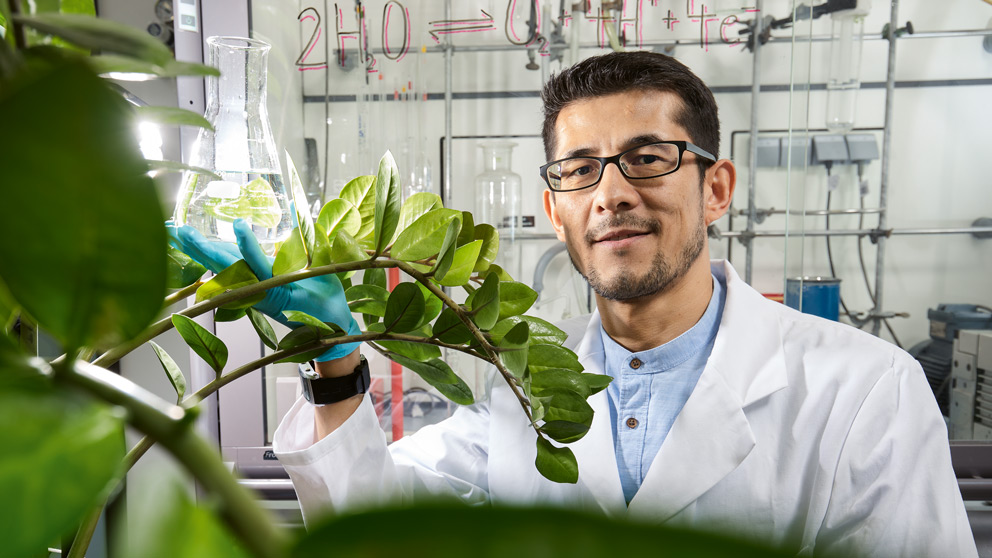Jump to the content
- {{#headlines}}
- {{title}} {{/headlines}}

Dr Mirabbos Hojamberdiev, former Humboldt Research Fellow, from Turin Polytechnic University in Tashkent received the Humboldt Foundation’s Georg Forster Research Award in 2017. He is currently pursuing his research at Technische Universität Berlin.

With more than 300 days of sunshine per year, Uzbekistan is predestined for solar energy. So far, approximately 90 percent of its energy needs are covered by fossil fuels. This is now supposed to change: by 2030, the government intends to set up solar plants that will generate enough power to meet more than a tenth of the nation’s energy needs.
But the sun is not just supposed to deliver power. Hojamberdiev investigates methods for photocatalytic water splitting, a technique that employs sunlight to divide water into hydrogen and oxygen with the help of special oxynitride materials. Electricity – indispensable in standard electrolysis – is rendered dispensable. This makes it possible to produce hydrogen from renewable sources and use it as an energy carrier. And, in addition, the technique can be used to clean up the environment. Together with researchers and students at the University of Dar es Salaam, Hojamberdiev demonstrated this in Tanzania at the end of 2017. “We managed to remove organic pollutants from the waters of a river near Arusha.” They are now looking to eliminate inorganic pollutants, too. “I hope my work will help to solve the world’s energy and environmental problems and build a sustainable society.”
published in Humboldt Kosmos 110/2019
